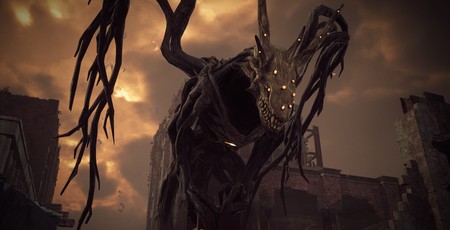
Price: £30.99
Developer: Gunfire Games
Publisher: Perfect World
Platform: PC, PS4, Xbox One
Version reviewed: PC
Remnant: From the Ashes is one of the most unashamed conglomerations of other ideas I’ve seen in a long time, a boiling soup of borrowed concepts from some of the most significant game designs of the last five years. It’s thematically and narratively all over the place, and there are times when it appears to be actively defying you to like it. And yet, it had me hooked for three full days. I’m still thinking about it now.

Remnant’s basic premise is to take the cooperative, loot-based gunplay of The Division and add the uncompromising difficulty and spectacular boss fights of Dark Souls. It places you in the role of a warrior who washes up on the shore of a nameless island home to the Root, a race of tree-people (no, I’m not joking) responsible for the destruction of human civilisation. Holing up in a place called Ward 13, you’re tasked by an underground resistance with finding out how to infiltrate the nearby tower containing the Heart of the Root, and destroying it.
At the outset, it’s hard to imagine Remnant as anything other than a generic third-person shooter. The first area you explore is a destroyed cityscape that could have been ripped directly from Gears of War, while its Dark Souls inspirations have all the subtlety of the Capra Demon. Souls’ bonfires are replaced by glowing crystals that let you save your progress and teleport back to Ward 13, while the kooky NPCs you encounter have little of the eldritch mystery that made Souls’ story so compelling. The combat itself is decent, and the game is certainly challenging, but otherwise it appears dull and uninspired.
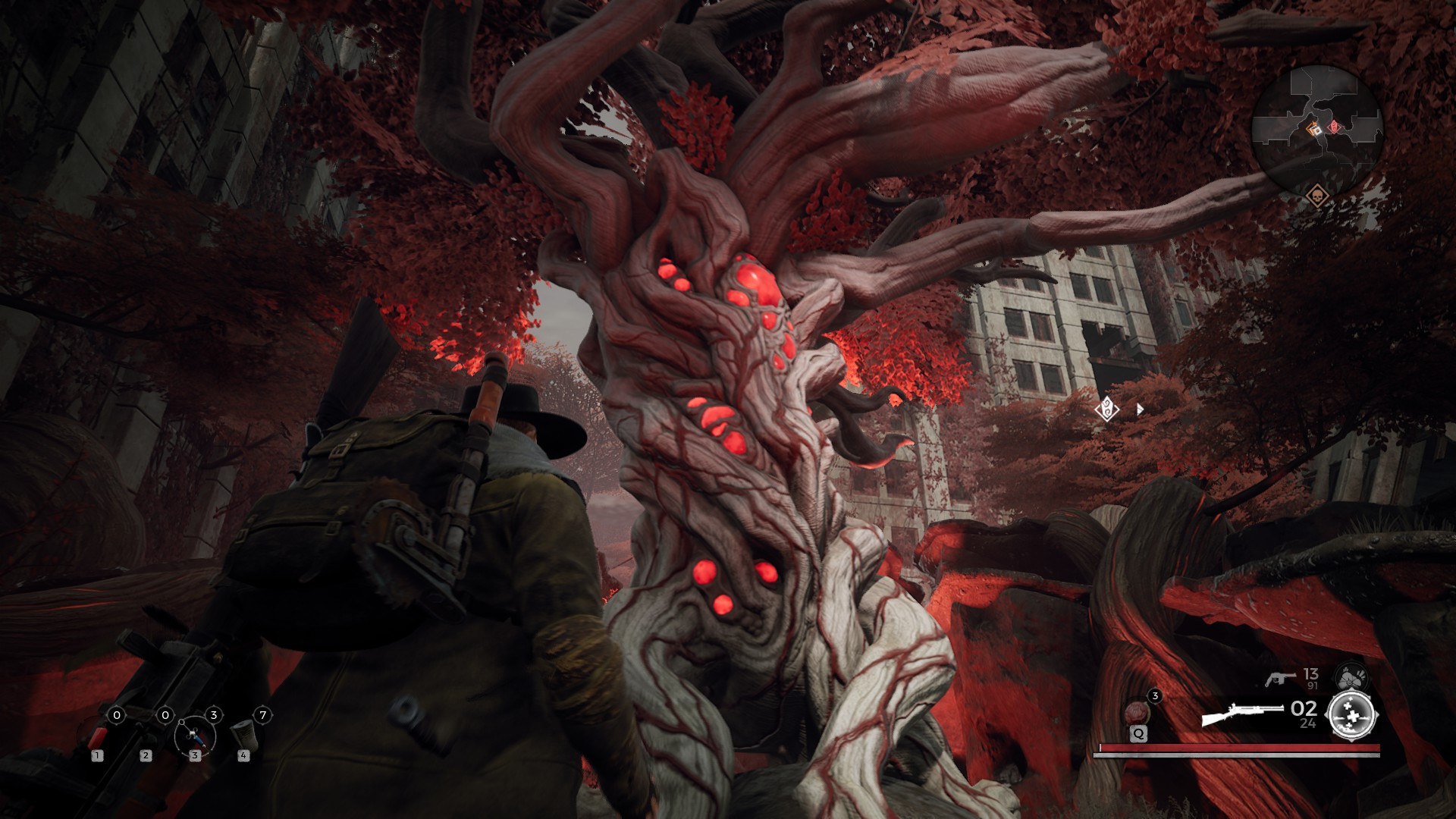
Then, just after you’ve squared off against your first major boss, Remnant completely changes, revealing itself not as another drab post-apocalypse shooter but as a delightfully daft dimension-hopping adventure.
At the crux of Remnant’s action is a place called the Labyrinth, a maze of stone corridors suspended in space that connects Earth to other worlds. Within moments of discovering it, you’re transported to a new planet called Rhom, the first of several alien worlds you’ll explore over the next few hours. The crumbling city blocks of Earth are replaced by giant obsidian spires, while the sky is frozen in permanent dusk by a sun trapped in eternal eclipse. Suddenly, you’re no longer being attacked by animated trees but by radioactive mutants and hulking cavemen who throw spears with devastating accuracy.
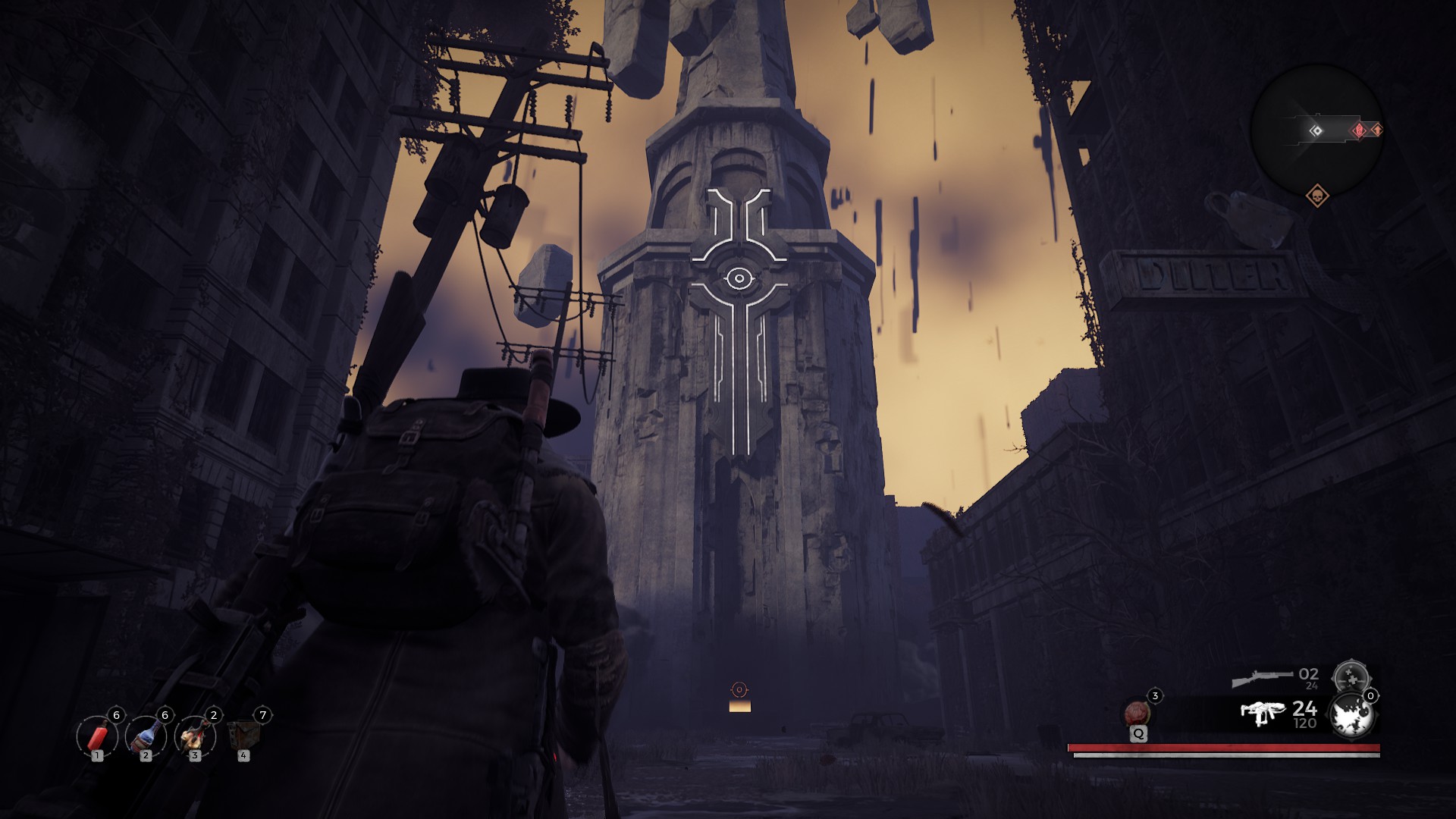
It’s one of the most impressive about-faces I’ve seen a game do in a while. And it hints at that elusive quality which makes Remnant so surprisingly enjoyable. The more you play it, the more rewarding the experience becomes.
The increasingly bizarre environments are only one strand of this idea. The game becomes mechanically more interesting as well, thanks to how its weaponry evolves. Loot is much rarer in Remnant than, say, The Division, but each item you pick up is distinct from everything else. For example, most of your main weapons are crafted from items dropped by bosses, and they all have fundamentally different effects. A selection of weapons I’ve wielded in Remnant include a machine-gun that doubles as a flamethrower, a gauss rifle that fires black holes, and a devastating radioactive laser.
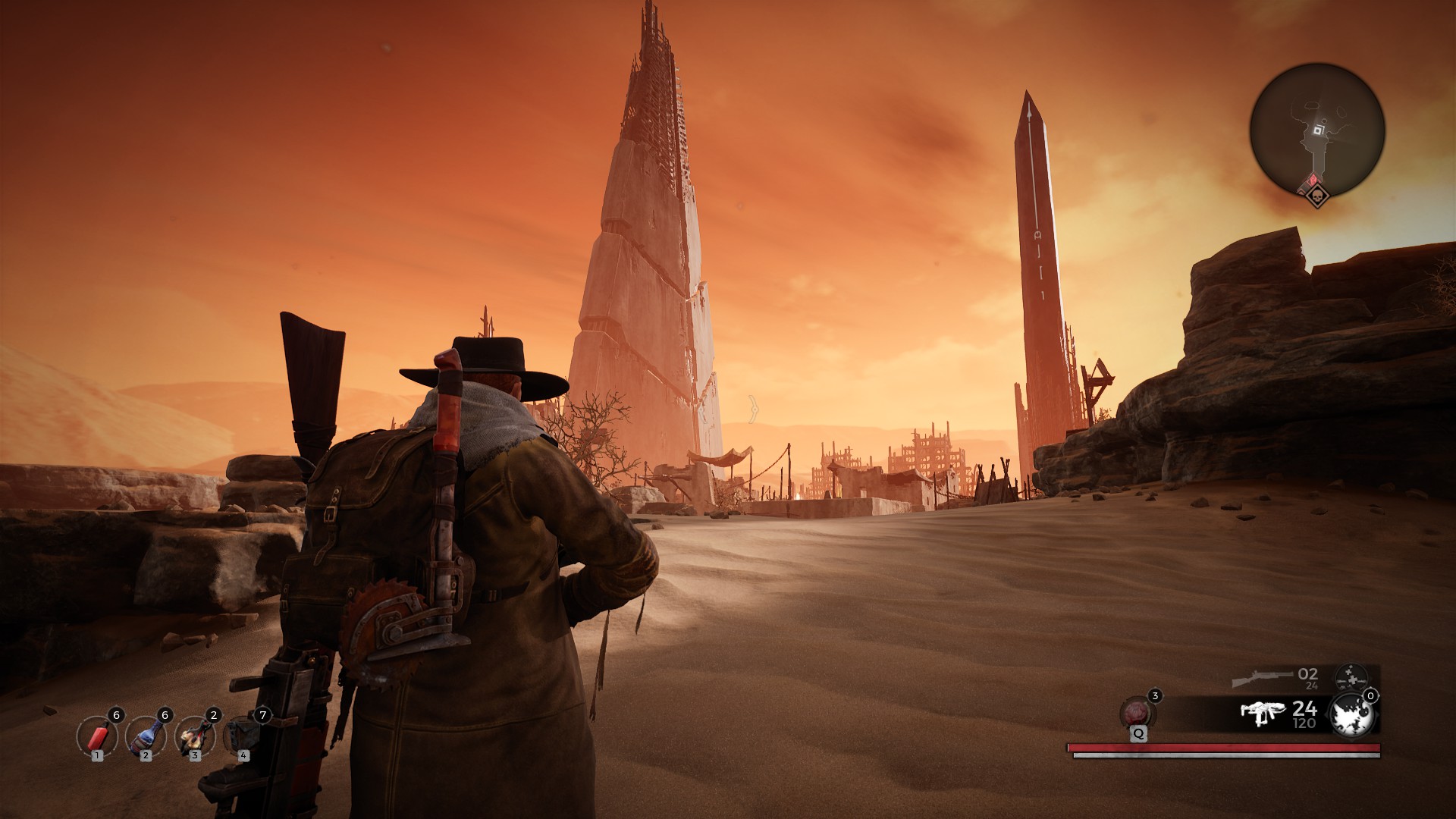
Remnant’s combination of strange environments and rare-but-unique loot gives the game a powerful forward momentum. The bosses are equally colourful too, ranging from a fire-breathing demon-dog called Singe to a giant tree with the face of Cthulhu known as the Ent. Interestingly, however, you’ll only face one of these two bosses on your first playthrough. This is because Remnant uses a unique 'dynamic generation' structure that means no two games are the same.
Remnant’s campaign is relatively short, lasting anywhere between eight and 15 hours depending on how accomplished a player you are. But you’ll only see about half of the overall game on your first run. Join another player’s campaign and you’ll discover that level layouts and boss encounters are often entirely different, with several potential options for each boss fight.
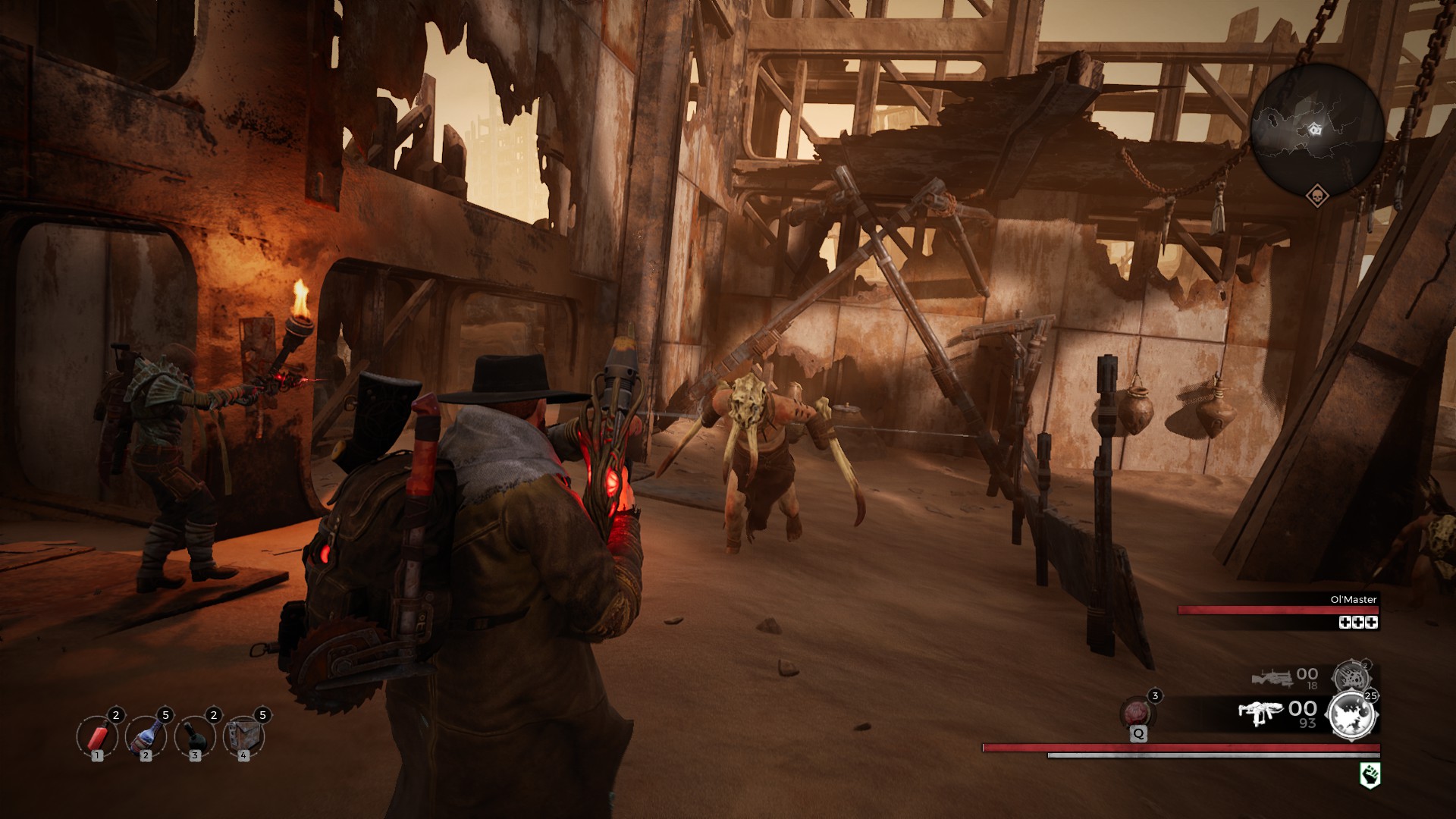
It’s a clever way to encourage experienced players to join in other people’s campaigns and not simply abandon the game once you’ve seen the end. Bosses will also drop different types of loot depending on how they are killed, so even if you don’t see a new boss in a replayed campaign, there’s still a reason to stick around for the fight. You also might encounter entirely new areas that you haven’t seen before.
In many ways it’s a more sensible approach to this style of game than building a huge world designed to be experienced only once. Even if you don’t see much that’s new, it’s fun to blast through those opening areas with a high-level character, just to see how far you’ve come.
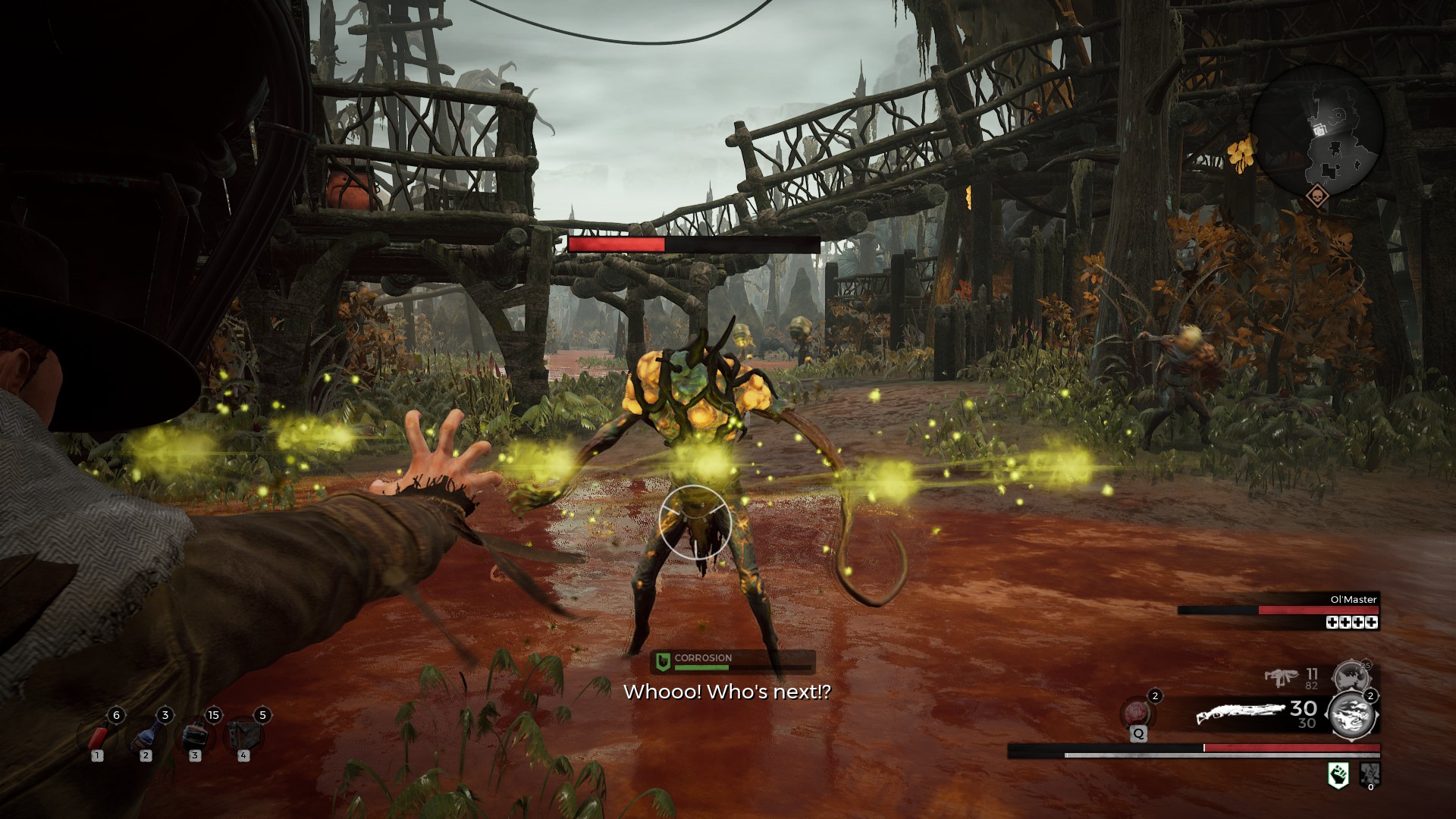
Remnant is a far better game than its mediocre opening suggests, but there are some problems that don’t go away. First and foremost, many of the bosses rely overly on mob-spawns to heighten the challenge. I don’t mind the fact that the game is hard, but I want to be beaten by the actual boss, not shanked in the back by yet another low-level enemy. It diverts your attention away from what should be the centre of the action, meaning you have no time to actually enjoy the encounter because you’re being constantly swarmed from the flanks.
Beyond that, I wish the game’s mythology was more coherent. I love the world-hopping concept, but it is possible to do “weird stuff” without it feeling like a random assortment of ideas, as Remedy’s excellent Control recently showed. Remnant, by comparison, often feels like it’s making the story up as it goes along, like a four-year-old going, 'And then, and then, and then, and then…' (or a Chinese take-out machine? - ed.). It borrows the storytelling conventions of Dark Souls, revealing plot through items descriptions and obscure NPC conversations, but it doesn’t have the narrative subtlety to weave it all together in a way that’s compelling.
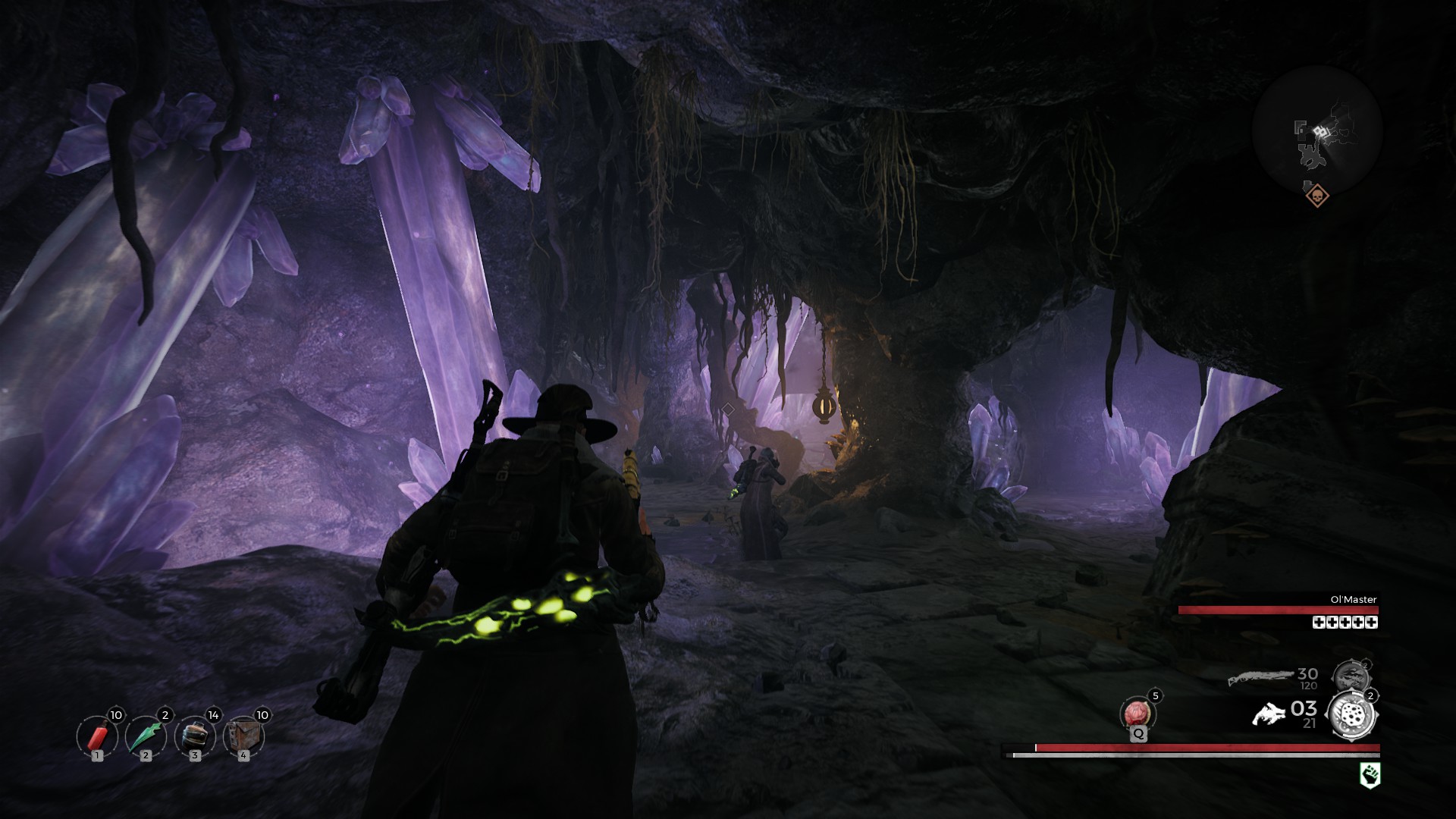
Like many games in this genre, Remnant is a foundation the developers obviously plan to expand upon. The Labyrinth has several doors that you won’t open, which will presumably unlock in the form of expansions. Regardless, it is a rock-solid base, and I fully believe that it could evolve into one of the best loot-based shooters currently on the market.


MSI MPG Velox 100R Chassis Review
October 14 2021 | 15:04









Want to comment? Please log in.